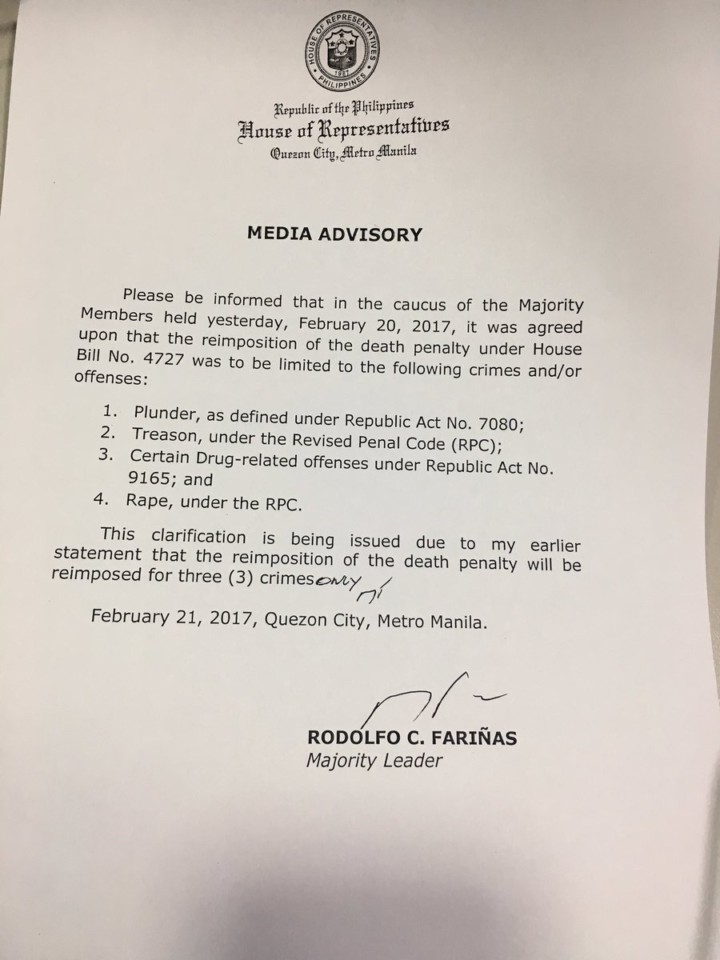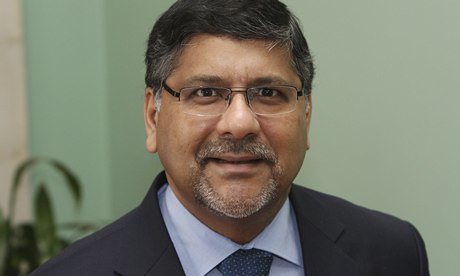
Filipino lawmakers have agreed to move forward with plans to reintroduce the death penalty for 21 crimes — but murder is not on the list.
After weeks of debate, the final list still includes crimes such as “maintenance of a drug den” and “treason”, but murder — the crime that traditionally garners popular support for capital punishment — is strangely absent.
Rape, however, has been returned to the final list now passed by the House of Representatives after seven days of debate.
The full list is as follows:
- Treason
- Plunder (ill-gotten wealth by holders of public office)
- Rape
- Importation of dangerous drugs and/or controlled precursors and essential chemicals
- Sale, trading, administration, dispensation, delivery, distribution, and transportation of dangerous drugs and/or controlled precursors and essential chemicals
- Maintenance of a drug den, dive, or resort
- Manufacture of dangerous drugs and/or controlled precursors and essential chemicals
- Cultivation or culture of plants classified as dangerous drugs or are sources thereof
- Unlawful prescription of dangerous drugs
- Criminal liability of a public officer or employee for misappropriation, misapplication, or failure to account for the confiscated, seized and/or surrendered dangerous drugs, plant sources of dangerous drugs, controlled precursors and essential chemicals, instruments/paraphernalia and/or laboratory equipment including the proceeds or properties obtained from the unlawful act committed
- Criminal liability for planting evidence concerning illegal drugs
Speaker Pantaleon Alvarez, Duterte’s staunch ally in the House, was among the authors of the bill for the death penalty revival after capital punishment was abolished in 2006 due to its documented failure to deter crime and concerns over miscarriages of justice.
There are also plans in the pipeline to lower the age of criminal liability in the Philippines from 15 to just nine. It is unclear whether any minimum age would be set for the imposition of the death penalty.
The prospect of a death penalty — whether or not it might be used against children — has appalled religious leaders and human rights groups.
Recently, the Catholic Church has organised huge rallies under the banner “Walk for Life” and diplomats have criticised the plans.
It has also been suggested that the return of capital punishment would violate the Philippines’ obligations under the Second Optional Protocol to the International Covenant on Civil and Political Rights, which bans signatories from reimposing the death penalty.
The law would also have implications for the Philippines’ ‘beneficiary country status’ within the European Union-Generalised System of Preferences Plus, a preferential tariff scheme that covers exports worth nearly $13 billion.

Criticism of the proposed law by the British ambassador in Manila was met with a withering response from the palace, with the diplomat being advised to look beyond his “gated village”.
UK ambassador Asif Ahmad had outlined the case against the new law, and said that “change had come to the Philippines, but not in a good way”.
He said: “The fact is that Philippine national hero Jose Rizal was buried as a martyr, was a victim of a death penalty. The very sense of nationhood in the Philippines stems from that injustice.”
He also raised the issue of the country’s treaty obligations. “Sad to think of an example for a country that signed up to, then want to go back,” he said. “The big question people will ask is, if a country can walk away from its international treaties, how much easier is it to walk away from many other agreements that you have?”
He also pointed to the howls of anguish heard every time a Filipino is convicted of a crime punishable by death in a foreign country. “What happens when a Filipino is being put to death such as in the case of Mary Jane Veloso in Indonesia? The whole country’s sentiment was she should not be executed, and the President intervened.
“You can’t just wrap the flag around yourself and say this is only for Filipinos.”
The ambassador’s words were dismissed by presidential spokesman Ernesto Abella, who said: “With all due respect to the British Ambassador, Mr Asif Ahmad’s remark that ‘change has come in the Philippines but not in a good way’ does not reflect the true sentiment of the common Filipino.
“Confidence – both business and consumers – is high in the Duterte administration. One wishes diplomats were more familiar with life beyond the rarefied atmosphere of gated villages.”
